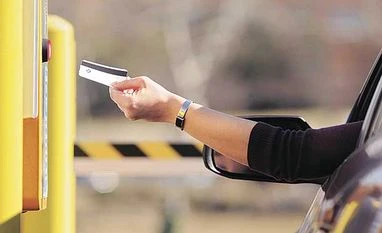Prime Minister Narendra Modi on Friday reviewed the progress of key infrastructure sectors of roads, rural and urban housing, railways, airports and ports.
In course of the presentation made in New Delhi by the CEO of NITI Aayog, Amitabh Kant, it was noted that the pace of road construction has picked up significantly, a statement from the Prime Minister's Office (PMO) said.
The average road length constructed per day in financial year 2017-18 was 26.93 km, compared to 11.67 km in FY 2013-14.
The prime minister was informed about the progress made in digitisation of the transport sector. More than 2.4 million RFID tags have been issued so far, and over 22 per cent of toll revenue now comes from electronic toll collection.
The Sukhad Yatra application, which provides information on road condition, and facilitates lodging of complaints, has till date been downloaded one lakh times by users.
The prime minister called for faster progress in electronic toll collection. Under Pradhan Mantri Gram Sadak Yojana, rural roads have now connected in 88 per cent of all eligible habitations.
Also Read
Over 44,000 villages have been connected with the road network between 2014 and 2018, compared to about 35,000 villages in the preceding four years, the statement said.
GIS mapping of roads is underway, and 20 states have so far been hosted on the Geospatial Rural Road Information System (GRRIS).
Green technologies, and non-conventional materials such as waste plastic and fly ash, are being used in rural road construction.
In the railways sector, there has been significant addition in capacity and rolling stock. Additions in "new lines, doubling and gauge conversion" between 2014 and 2018, was to the extent of 9,528 km, which is 56 per cent higher than the preceding four-year period.
In the aviation sector, passenger traffic has grown by more than 62 per cent in the four-year period between 2014 and 2018, against 18 per cent in the preceding four years.
Under the UDAN scheme, 27 airports are now operational in tier 2 and tier 3 cities.
In the ports sector, traffic volume in major ports have increased by 17 per cent in the period between 2014 and 2018.
In the rural housing sector, the prime minister was informed that over one crore houses have been constructed in the period from 2014 to 2018, as compared to about 25 lakh houses in the preceding four-year period. This has boosted employment in the housing sector and allied construction industries.
According to an independent study, the average construction completion time has dropped sharply, from 314 days in 2015-16, to 114 days in 2017-18. Stress is also being laid on disaster resilience, and low-cost housing design typologies.
In urban housing, emphasis is being laid on new construction technologies. As many as 54 lakh houses have been sanctioned under Pradhan Mantri Awaas Yojana (Urban), since the inception of the scheme.
The review meeting, which lasted for nearly two hours, was attended by top officials from infrastructure-related ministries, NITI Aayog, and the PMO.
)